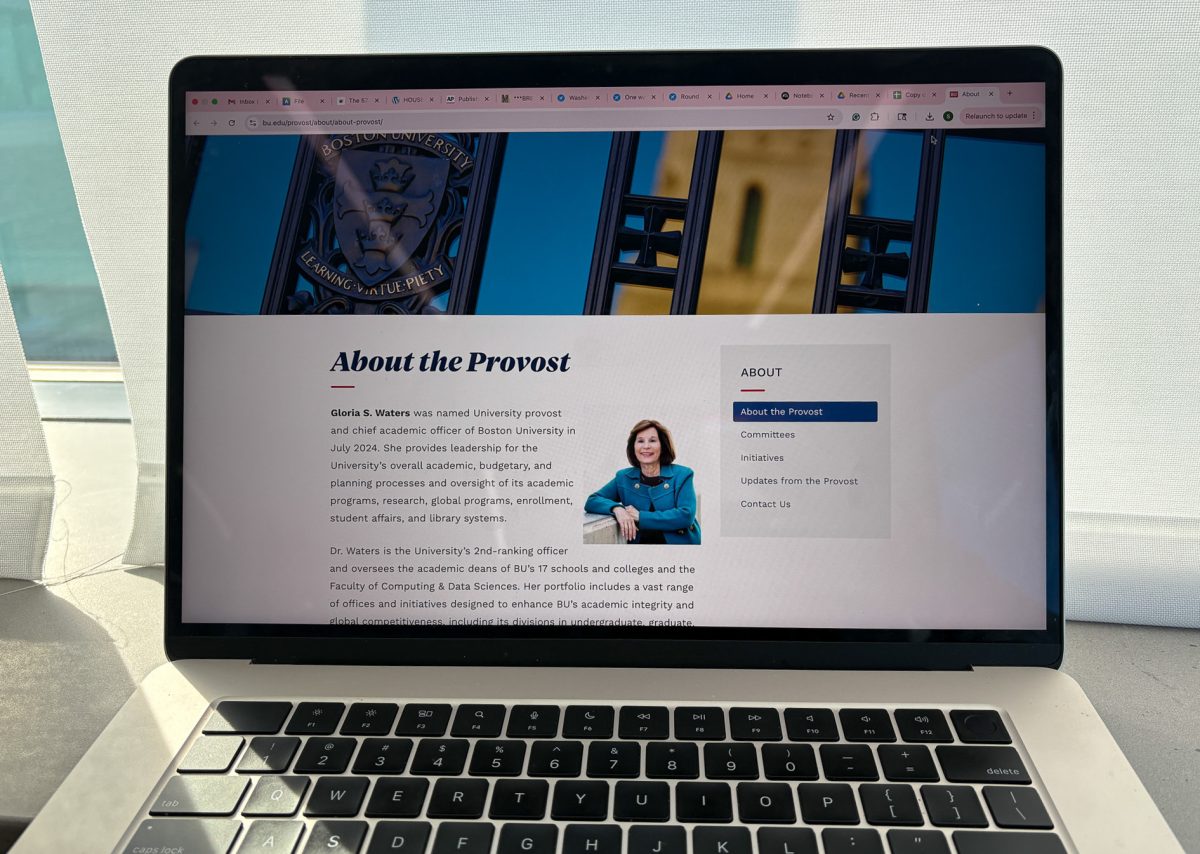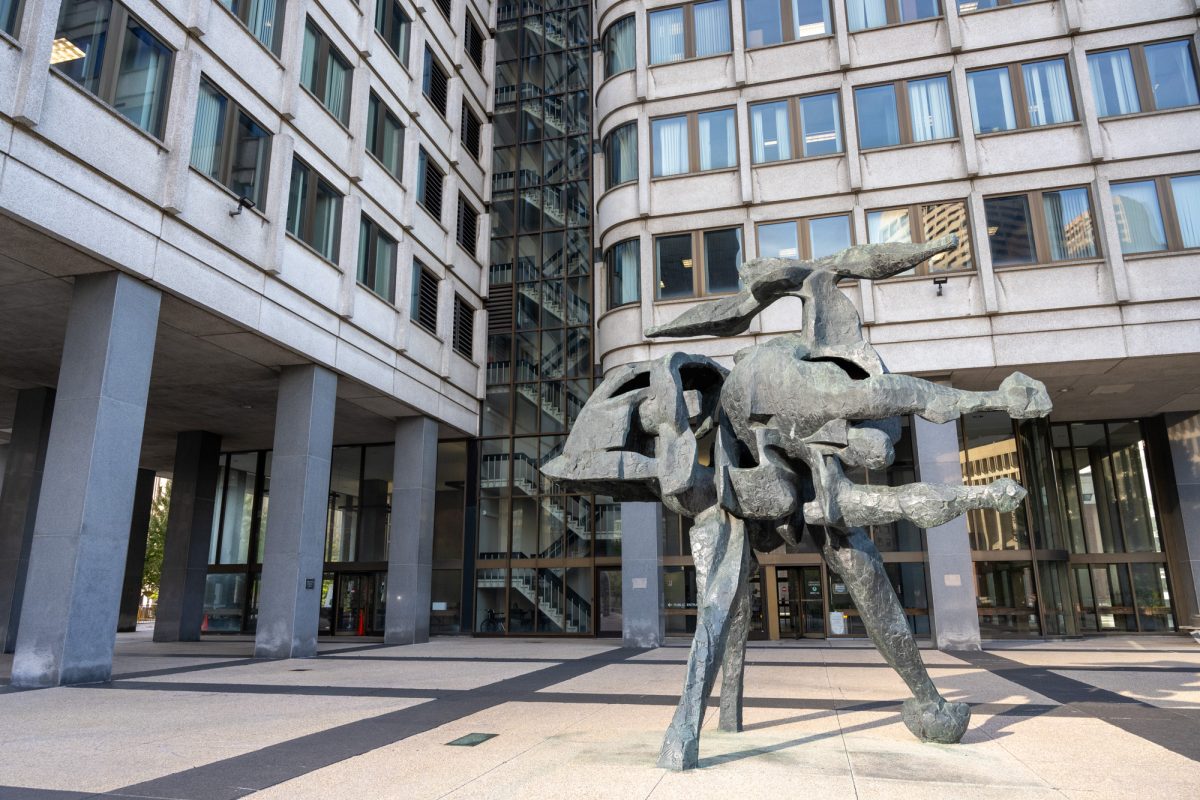Natasha Hochberg, an associate professor of medicine at Boston University, received a grant last month for a research proposal to study the effects of nutritional interventions on combating tuberculosis in India. The grant was announced April 26 in a press release from the School of Medicine.
The research proposal, titled “Scaling Up Nutritional Interventions to Stop Tuberculosis in India,” will be funded by the BU Global Programs and BU Foundation-India’s Spring 2019 Seed Fund. Hochberg’s work will start this summer.
The project will have two co-investigators: Nalin Kulatilaka, the co-director of the Questrom School of Business’ Susilo Institute for Ethics in the Global Economy, and Lindsey Locks, an assistant professor in the Sargent College of Health and Rehabilitation Sciences, according to the release.
Additionally, the BU researchers will work with Dr. Subitha Lakshminarayanan, an associate professor at the Jawaharlal Institute of Postgraduate Medical Education and Research in India, according to the press release.
Hochberg said data shows that people who are inadequately nourished are more likely to develop tuberculosis. The Seed Fund grant will build off of an existing study that BU has in India, she said, which provides multivitamins and nutritional food packages to families with a TB patient.
“The Seed Grant is going to provide the funding to evaluate the border impact of the nutritional package from things like economic endpoint [and] the social endpoint of the ability to, for example, get to work, get to school, not [have] some catastrophic cost at the family’s well-being,” Hochberg said.
India has the highest number of TB cases in the world, Hochberg said — 27 percent of the 10 million global cases each year. Because of this crisis, she said, the country has created a plan to eliminate TB in the next six years.
“India is committed to trying to eliminate tuberculosis on an even more aggressive timeline than the rest of the world,” Hochberg said. “The Indian government means to eliminate TB by 2025, so there is a need of a potential way to do this.”
Amanda Miller, managing director of strategy and communications for BU Global Programs, wrote in an email Global Programs looked into nine research proposals and ultimately chose Hochberg’s for its crossover of health sciences and economics.
“The committee evaluated each proposal against the assessment criteria,” Miller wrote. “Ultimately Dr. Hochberg’s proposal … best met the evaluation criteria. The committee also particularly liked the unique cross-disciplinary approach to the problem.”
Kulatilaka said he and Questrom will work to try to find ways to involve the private sector in India in nutrition-based TB management programs. The context for this work, he said, is a program in India that mandates all companies above a certain size devote 2 percent of their profits “to the social impact of sustainability.”
“One of the keys is what qualifies for that sustainability program?” Kulatilaka said. “One of the things that we are trying to do with this project is that, in fact, nutrition programs that are looking for health outcomes actually have a much broader social impact by improving the quality of life of the community and the society at large.”
If the researchers can measure that impact, he said, it could “justify a much broader set of financial assistance” in the country.
Hochberg said she and her co-investigators will work to engage Indian businesses on nutritional intervention efforts.
“We are going to develop a symposium that tries to engage these businesses and thinks about their role in promoting health,” she said, “so trying to engage with the 2 percent corporate social responsibility to re-invest back in public health and thinking about the role for nutritional intervention in community.”
Hochberg said she hopes her team’s research will have a positive impact on India’s fight against tuberculosis.
“The end goal is to try to provide additional evidence to local businesses and the Indian government to think about the goals that the nutrition plays in tuberculosis, as well as other health matters,” Hochberg said. “We are trying to provide that support and, through the symposium and the research, try to help develop the infrastructure.”
Sam Sajdak, a junior in the College of Communication, said she was excited to hear Hochberg’s research proposal was chosen for funding.
“Boston University takes pride in their international presence,” Sajdak said, “so funding research that will provide insight in India’s TB crisis is amazing.”
Gracie Abdalla, a freshman in the College of Arts and Sciences, said this could be inspiring for students studying medicine at BU.
“I like how BU is striving not only domestically,” she said, “but also internationally in the medical field.”
























































































































